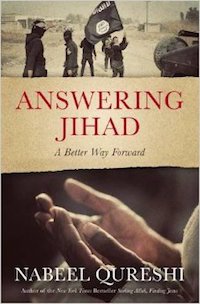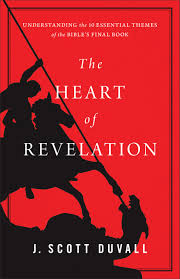This review was first published at Panorama of a Book Saint on Nov 24th 2012.
c
TITLE:
Living God's Word: Discovering Our Place in the Great Story of Scripture
AUTHOR: J. Scott Duvall and J. Daniel Hays
PUBLISHER: Grand Rapids, MI:
Zondervan, 2012, (320 pages).
We learn best from stories because stories shape our thinking and our living. If we can find God in the story, and subsequently see our place in the story, we are in for an exciting time of learning and living. This is the premise of this book. For those of us who loves to "walk" through the Bible and see the big story, this book helps us to do just that. Through their teaching experience at Bible schools, the authors encounter two major problems. Firstly, students are not sure how the stories in the Bible fit in the overall Story. Secondly, students need help on how to read the Bible for themselves. Riding on the success of their first book, "
Grasping God's Word," Duvall and Hays have come up with a complementary edition that focuses on the overall story of the Bible. The earlier book was written to enable readers to read, to interpret, and to apply the teachings of the Bible. This new book is intended for readers to survey the whole Bible, and to enable readers to discover the riches of the Bible for themselves. Using the letter C as an alliteration device, the authors comb the 66 books of the Bible to tell the story in 20 chapters. The first half tells the great story of God's creation leading all the way to the final and perfect Redemption of the world. Beginning with creation, there is the unfortunate fall of man. God enters the picture again with a redemption plan, to redeem Israel through the Abrahamic call. Israel fails terribly and soon, God enters the picture with a relationship with the people through the Mosaic covenant and the commandments. Israel fails miserably again despite their conquests and their requests for a king. As Israel crumbles and goes into captivity, despite the multiple warnings given by prophets and priests, kings and soothsayers, God's people continue their rebellion, and the Old Testament ends without much good news as far as the Israelite behaviour is concerned. This is followed by a chapter that describes the time of silence. I find this chapter very illuminating as it stands between the first and the second testaments, in a neither beginning or end state. Readers are left pondering "What happened?" as they reflect on the Old Testament events. They are also left to grapple with the next questions:
- What does it all mean?
- What is going to happen next?
- Is there hope?
Enters God again in the New Testament. The New Testament is broadly described in three segments: Christ, Church, and Consummation. Like creation, God is the Initiator again. Man cannot save himself. God can. By sending Christ, to enter our world, to teach the world, and to be crucified and sacrificed for the sake of the world. After His resurrection, Christ commissions his disciples to continue the mission. He promises the Holy Spirit who will lead the Church to do great things for God, in distributing the salvation message. The Consummation represents a happy ending to a great story. Each chapter begins with a hook to get the reader interested. There are stories like toddler and the electrical outlets, spiders in a truck, a wedding vow, Superman's cape, and many more to grab the attention of the contemporary reader. The reader is then urged to read or listen to a few key passages of the Scriptures that describe the story more explicitly. The contexts, the characters, and the contents are introduced, followed by some basic themes.
My Thoughts
There is an intentional story-telling emphasis in the whole book. In order to tell the story of stories, one needs to be utterly familiar with the whole Bible. This is where the authors shine in their comprehension and their familiarity with modern learners. Like good teachers, they give readers a clear overview of the book. I love the way they put the chapter headings so concisely. Reflecting on the chapter title alone already gives us a good idea where the authors are heading. For me, it is a powerful learning key. The twenty learning keys are like handrails to guide readers through all 66 books of the Bible. They all lead toward a great climax of the story. They all build upon previously established steps or story endings. They all progress in a direction. While the authors do not give an individual book-by-book approach, they provide a thought-by-thought progression that makes great story-telling. In fact, preachers can also use the book as material for 20 sermons too. The frameworks are excellent ways to tell stories and to bring out the biblical themes clearly. I like the many summaries that we need reminding from time to time. For example, the summary of the Ten Commandments, the maps of Palestine and Israel to give readers an idea of the contexts of the land, the comparison of narratives in Kings as well as Chronicles, and many more. The blue-boxed out summaries are refreshing and make for great Powerpoint slides. The bibliography at the end of each chapter is intentionally short so as not to make research too intimidating.
That said, there are some weaknesses in the approach taken by Duvall and Hays. Let me mention three.
First, there is some amount of straitjacketing going on. Everytime we use a alliteration device, we try to force our story to reflect the C-word we choose. It is one thing to let the Bible inform the story. It is yet another to let a certain interpretation inform how one reads the Bible. For this reason, I recommend the book for beginner to moderate level readers. Those who are trained theologically will know that there are many more nuances associated with each of the 66 books. While the story flow is true, we cannot presume that these are the only stories worth telling.
Second, there is some reductionism going on? Why only 20 chapters? Perhaps, brevity is a concern. Maybe, the book is designed more for popular reading. That said, it is important to remember that this is the authors' way of communicating truth in a readable manner. In fact, there can be 30 chapters or even 40 chapters, depending on how we want to frame our story. It is a reminder that the book is a summary, and readers are to remember that summaries do result in some reductionism. If readers understand that, it is ok.
Third, this book in itself is already an interpretation of the Bible story. For readers who are keen to do inductive studies, this book is not for you. Supplement this book with others. However, if the book can encourage Bible literacy, to motivate readers to read the Bible with more enthusiasm, it is still a very good thing.
If I can use my own learning acronym for this book, it will be F.U.L.L.
- Finding the story (Discovery)
- Understanding the story (Delight)
- Learning the story (Deepen)
- Living the story. (Do)
This book helps us to do that very well. I recommend this book for the beginner student, as well as the layperson wanting to read the Bible from the eyes of story telling. If you have read "Grasping God's Word," you will love this book too.
Rating: 4.5 stars of 5.
conrade
This book is provided to me free by Zondervan and NetGalley without any obligation for a positive review. All opinions offered above are mine unless otherwise stated or implied.
conrade

















